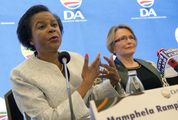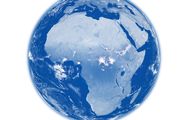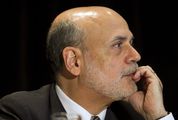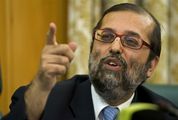THE number and scale of African conflicts may be gradually waning compared with the Cold War era but fighting in several countries is putting the brakes on the continent’s economic growth and development.
This is according to analysts and researchers who are comparing notes in the Ethiopian capital ahead of a two-day African Union (AU) summit opening on Thursday.
In investor forums, businesspeople and politicians recite the mantra of Africa Rising, a true but partial account of record-breaking increases in gross domestic product (GDP) based on global demand for resources and gigantic spending on new infrastructure.
But the less palatable story afflicting half the AU’s 54 members is one of fighting, insecurity and lost opportunities.
This year began with a radical degeneration of the ethnic and religious civil war in Central African Republic (CAR) and the sudden collapse of peace in South Sudan, Africa’s youngest state, even though at the tender age of two it has been smothered with love, if that is the correct way to characterise foreign aid.
"The conflict prevention mechanism just isn’t working in Africa," said Oxfam International’s Desiré Assogbavi. "We all knew about South Sudan but nobody could do anything to stop it," he told a briefing in Addis Ababa on Tuesday by the Institute for Security Studies (ISS).
The Pretoria-based think-tank has published a report coinciding with the AU summit looking at why and how 26 African states can be classified as "fragile" and will remain so for the next few decades or even indefinitely.
"Despite sterling growth elsewhere, these countries are trapped in a cycle of poverty, inequality, violence and poor governance from which they cannot easily escape," the report says.
Arguments will rage about why Nigeria is not among the 26 when a swathe of its territory is vulnerable to Islamist rebellion, and why Rwanda and Ethiopia are on the list despite ostensibly running such tight and efficient governments.
Future planning scenarios are not an exact science but a widely shared view is that much more needs to be done to prevent and end conflict.
Jakkie Cilliers, the executive director of ISS, told Tuesday’s briefing that the AU and individual governments had to confront difficult truths, like the lack of progress in creating African standby forces.
"There is not a single conflict in this continent that is not linked to a neighbour. There is a lot of talk about solidarity and ubuntu but the meddling is there," Dr Cilliers said.
The point is borne out in both of Africa’s current flashpoints.
One factor in the steady decline into mayhem in CAR is that neighbouring Chad provides both peacekeepers in an AU force and irregulars in the Seleka militia that is blamed for whipping up religious hatred between Christians and minority Muslims.
Uganda’s substantial military support for South Sudan’s president, Salva Kiir, has been critical in turning the tide against his former ally turned enemy, Riek Machar.
This summit has been preceded by a rare and possibly unique call to arms by some big names in African civil society. A joint statement on Monday called for more internal democracy in the AU and for governments to stop relying on donors to pay the organisation’s bills.
"The African agenda cannot be driven by Africans if it is being paid for by non-Africans," said Ibrahima Kane of the Open Society Foundation.
The civil society coalition, which includes Oxfam International and lawyers’ groups as well as the Open Society, estimates that 60% of the AU’s total budget of $308m, covering operations and programmes, comes from foreign donors. China even paid for and constructed the organisation’s new headquarters.
The joint statement said that by mid-2012 only 11 countries had paid up their dues to the AU. South Africa is not among the debtors and indeed it is co-responsible for 66% of the AU budget with four other major states: Algeria, Egypt, Libya and Nigeria.
The cost of conflicts — particularly of deploying peacekeepers to hold the ring — is largely borne by European taxpayers, directly or via the US. The civil society statement condemned the pan-African body for that, as well.
The "African Union has yet again shown its inability to lead and effectively resolve the conflicts taking place in various parts of the continent, most recent of which happens to be South Sudan". In what can be considered a sign of progress, the AU not only hosted the meeting of its civil society critics but also agreed to publish their fierce statement.
• Kotch is in Addis Ababa as a guest of the Department of International Relations and Co-operation.
























Post a comment